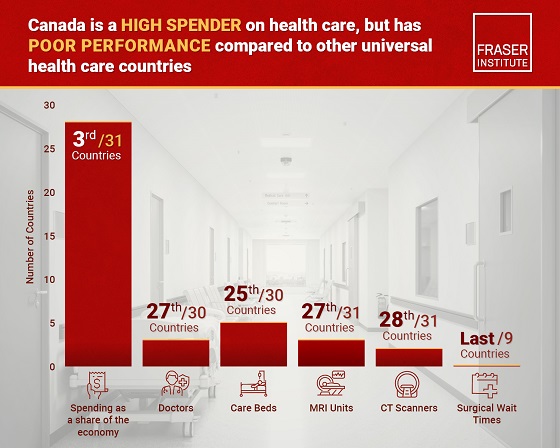Censorship Industrial Complex
Canada’s justice minister confirms ‘hate crimes’ bill applies to online content

From LifeSiteNews
Individuals could be criminally charged for social media posts or other online content deemed offensive by the government under the Combating Hate Act.
Canadian Justice Minister Sean Fraser admitted that his new “hate crime” bill would indeed allow a person to be criminally charged for social media posts deemed offensive by the government.
Recently asked about Bill C-9, the Combating Hate Act, Fraser said the bill would indeed apply to certain online content that involves the “willful promotion of hatred.”
“Generally speaking, the law will apply equally online as it does in real communities,” he said, adding, “just in the limited circumstances where there is the willful promotion of hatred against someone.”
As reported by LifeSiteNews, Bill C-9 has been blasted by constitutional experts as allowing empowered police and the government to go after those it deems have violated a person’s “feelings” in a “hateful” way.
Bill C-9 was brought forth in the House of Commons on September 19 by Fraser. The Liberals have boasted that the bill will make it a crime for people to block the entrance to, or intimidate people from attending, a church or other place of worship, a school, or a community center. The bill would also make it a crime to promote so-called hate symbols and would, in effect, ban the display of certain symbols such as the Nazi flag.
While being questioned by Conservative MP Andrew Lawton about Bill C-9, Fraser was asked if the new law would “affect what people can say and write on the internet” and also if people could be retroactively punished for online comments made today.
In reply, Fraser said, “The only circumstance where you could imagine some online comment attracting scrutiny under this law would attach to behaviour that is criminal today but would be punished less severely.”
He said that “(t)he willful promotion of hate is a crime today, but we want to recognize a distinct charge where that same behaviour uses certain symbols of hate to bring a higher degree of culpability.”
John Carpay of the Justice Centre for Constitutional Freedoms (JCCF) has blasted Bill C-9 as something that would “empower police” and the government to go after those it deems have violated a person’s “feelings” in a “hateful” way.
Also, as reported by LifeSiteNews, Conservative MP Leslyn Lewis called out the hypocrisy of Bill C-9 for being silent regarding rising “Christian hate.”
Lewis has warned before that Bill C-9 will open the door for authorities to prosecute Canadians’ speech deemed “hateful possibly.”
Carpay also lamented how the bill mentions “rising antisemitism” but says nothing about the arson attacks on Catholic and Christian churches plaguing Canada.
“Anti-Catholic hate is obviously not on the minister’s radar. If it were, he would have mentioned it when introducing the Combating Hate Act,” Carpay wrote.
Since taking power in 2015, the Liberal government has introduced numerous new bills that, in effect, censor internet content and restrict people’s ability to express their views.
Censorship Industrial Complex
Who tries to silence free speech? Apparently who ever is in power.

Now that Trump is running Washington, Conservative thinkers must ponder a new-found appreciation for silencing speech they don’t like.
From StosselTV
War on Words: Both Parties Try to Silence Speech They Don’t Like
Donald Trump, before he was reelected, said he’d end government censorship. But now that he’s in office? He calls speech he doesn’t like “illegal.”
Free Speech should be a bedrock American value, no matter who’s in office. After the murder of Charlie Kirk, Republicans, who once complained about censorship, became censors. Democrats suddenly flip-flopped. All politicians should remember, the way to fight speech you don’t like, is with more speech, not censorship.
After 40+ years of reporting, I now understand the importance of limited government and personal freedom.
——————————————
Libertarian journalist John Stossel created Stossel TV to explain liberty and free markets to young people.
Prior to Stossel TV he hosted a show on Fox Business and co-anchored ABC’s primetime newsmagazine show, 20/20.
Stossel’s economic programs have been adapted into teaching kits by a non-profit organization, “Stossel in the Classroom.” High school teachers in American public schools now use the videos to help educate their students on economics and economic freedom. They are seen by more than 12 million students every year.
———
To make sure you receive the weekly video from Stossel TV, sign up here: https://www.johnstossel.com/#subscrib…
———
Censorship Industrial Complex
Canada’s privacy commissioner says he was not consulted on bill to ban dissidents from internet

From LifeSiteNews
Privacy Commissioner Philippe Dufresne that there was no consultation on Bill C-8, which is touted by Liberals as a way to stop ‘unprecedented cyber-threats.’
Canada’s Privacy Commissioner admitted that he was never consulted on a recent bill introduced by the Liberal government of Prime Minister Mark Carney that became law and would grant officials the power to ban anyone deemed a dissident from accessing the internet.
Privacy Commissioner Philippe Dufresne said last week that in regard to Bill C-8, titled “An Act respecting cyber security, amending the Telecommunications Act and making consequential amendments to other Acts,” that there was no consultation.
“We are not consulted on specific pieces of legislation before they are tabled,” he told the House of Commons ethics committee, adding, “I don’t want privacy to be an obstacle to transparency.”
Bill C-8, which is now in its second reading in the House of Commons, was introduced in June by Minister of Public Safety Gary Anandasangaree and has a provision in which the federal government could stop “any specified person” from accessing the internet.
All that would be needed is the OK from Minister of Industry Mélanie Joly for an individual to be denied internet service.
The federal government under Carney claims that the bill is a way to stop “unprecedented cyber-threats.”
The bill, as written, claims that the government would need the power to cut someone off from the internet, as it could be “necessary to do so to secure the Canadian telecommunications system against any threat, including that of interference, manipulation, disruption, or degradation.”
While questioning Dufresne, Conservative MP Michael Barrett raised concerns that no warrant would be needed for agents to go after those officials who want to be banned from the internet or phone service.
“Without meaningful limits, bills like C-8 can hand the government secret, warrantless powers over Canadians’ communications,” he told the committee, adding the bill, as written is a “serious setback for privacy,” as well as a “setback for democracy.”
Barrett asked if the goal of the bill is for Parliament to be granted “sweeping powers of surveillance to the government without a formal review?
Dufresne said, “It’s not a legal obligation under the Privacy Act.”
Experts have warned that Bill C-8 is flawed and must be “fixed.”
The Canadian Civil Liberties Association (CCLA) blasted the bill as troublesome, saying it needs to “fix” the “dangerous flaws” in the bill before it becomes law.
“Experts and civil society have warned that the legislation would confer ministerial powers that could be used to deliberately or inadvertently compromise the security of encryption standards within telecommunications networks that people, governments, and businesses across Canada rely upon, every day,” the CCLA wrote in a recent press release.
Canada’s own intelligence commissioner has warned that the bill, if passed as is, would potentially not be constitutionally justified, as it would allow for warrantless seizure of a person’s sensitive information.
Since taking power in 2015, the Liberal government has brought forth many new bills that, in effect, censor internet content as well as go after people’s ability to speak their minds.
Recently, Canadian Conservative Party MP Leslyn Lewis blasted another new Liberal “hate crime” bill, calling it a “dangerous” piece of legislation that she says will open the door for authorities to possibly prosecute Canadians’ speech deemed “hateful.”
She also criticized it for being silent regarding rising “Christian hate.”
-

 Courageous Discourse2 days ago
Courageous Discourse2 days agoNo Exit Wound – EITHER there was a very public “miracle” OR Charlie Kirk’s murder is not as it appears
-

 Business2 days ago
Business2 days agoEmission regulations harm Canadians in exchange for no environmental benefit
-

 Alberta2 days ago
Alberta2 days agoPetition threatens independent school funding in Alberta
-

 Business2 days ago
Business2 days agoQuebecers want feds to focus on illegal gun smuggling not gun confiscation
-

 National2 days ago
National2 days agoPolitically Connected Canadian Weed Sellers Push Back in B.C. Court, Seek Distance from Convicted Heroin Trafficker
-

 Business1 day ago
Business1 day agoCanada Revenue Agency found a way to hit “Worse Than Rock Bottom”
-

 MAiD1 day ago
MAiD1 day agoDisabled Canadians increasingly under pressure to opt for euthanasia during routine doctor visits
-

 Business2 days ago
Business2 days agoCanada has fewer doctors, hospital beds, MRI machines—and longer wait times—than most other countries with universal health care





